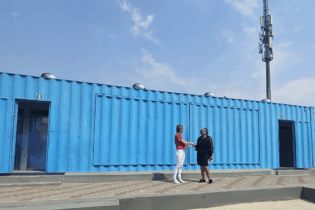Government has raised R195 million to assist in eradicating pit latrines at schools across the country.
According to Deputy President David Mabuza, a multi-stakeholder breakfast on sanitation infrastructure for schools has raised R195 million in commitments and pledges as part of the Sanitation Appropriate for Education (SAFE) initiative, which was launched by President Cyril Ramaphosa in August. This collaborative initiative between the public and private sector aimed at eradicating pit latrines at schools across the country. According to Mabuza, the breakfast resulted in R145 million in commitments and a further R50 million in pledges. “This R195 million will go to approximately 4 000 sanitation infrastructure [projects], which are going to be distributed all over the country,” he said. The funds, donated by the private sector, will be administered by the National Education Collaboration Trust which Mabuza says will ensure that the funds are being utilised correctly.The roll-out of sanitation infrastructure will at with the schools without any ablution facilities. According to the deputy president, this amounts to 37 schools. However a further 8 702 schools are still using pit latrines, while 7 433 schools use ventilated improved pit latrines, and 92 use chemical toilets.
In line with the SAFE initiative, the Department of Basic Education was advised to develop a plan informed by the audit of the current state of sanitation in schools across the country. “The Presidency will monitor and provide support throughout the implementation of the plan. In addition to the above support, we will continue to solicit more support from the private sector to enhance collaboration,” said Mabuza. “I will engage other departments that have a role in the provision of sanitation such as Water and Sanitation, Cooperative Governance and Traditional Affairs and Environmental Affairs, as well as the local spheres of government, to play their part. “We implore communities to support the SAFE initiative and discourage those that are disrupting construction programmes on site once they have started.”






